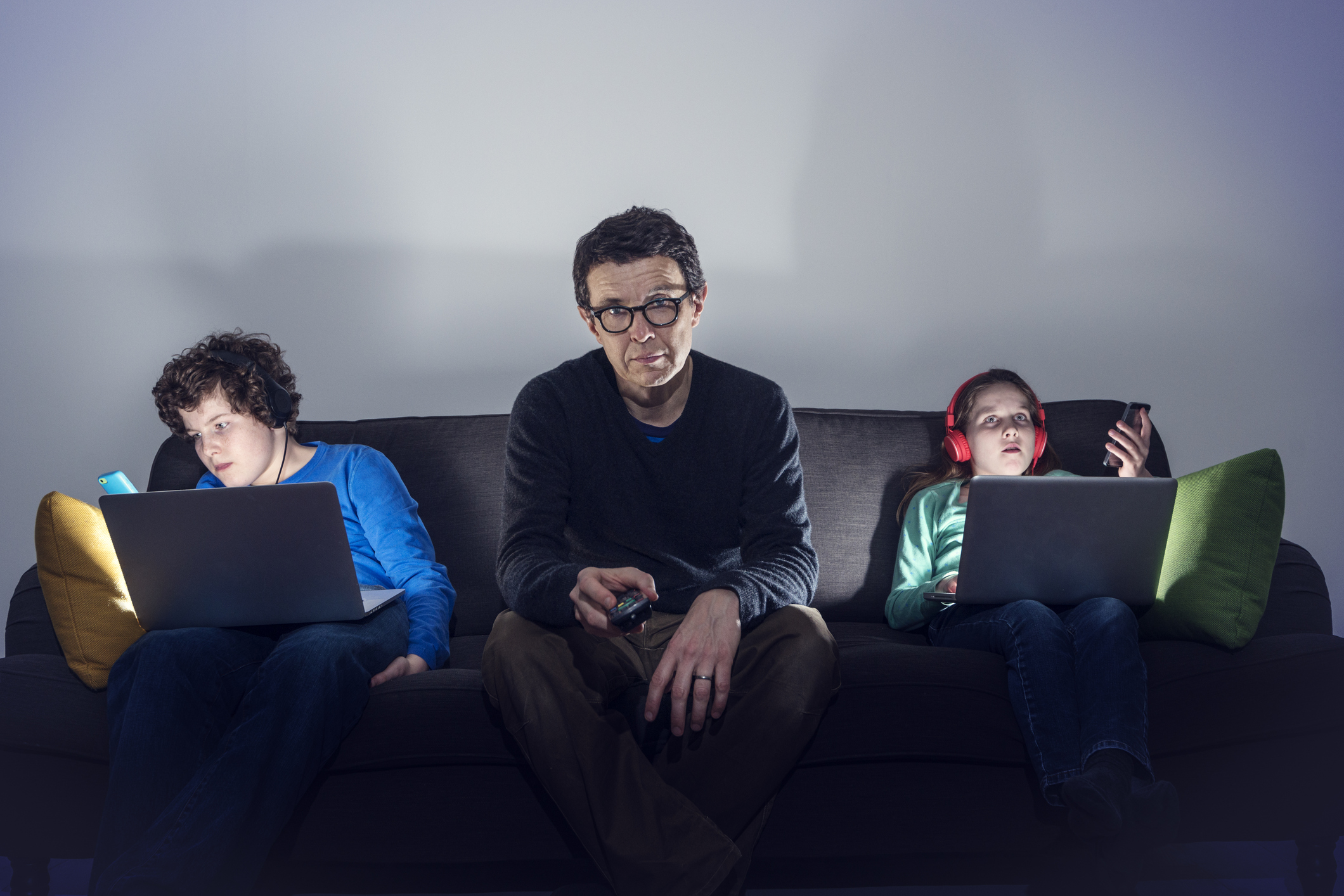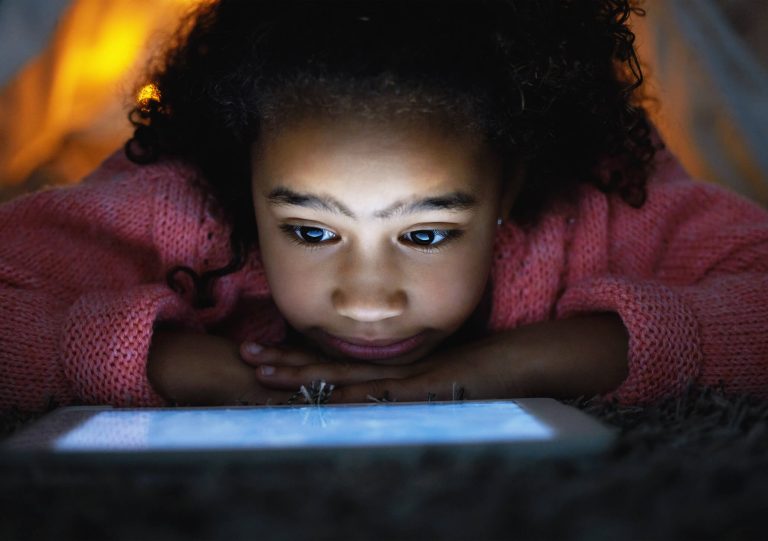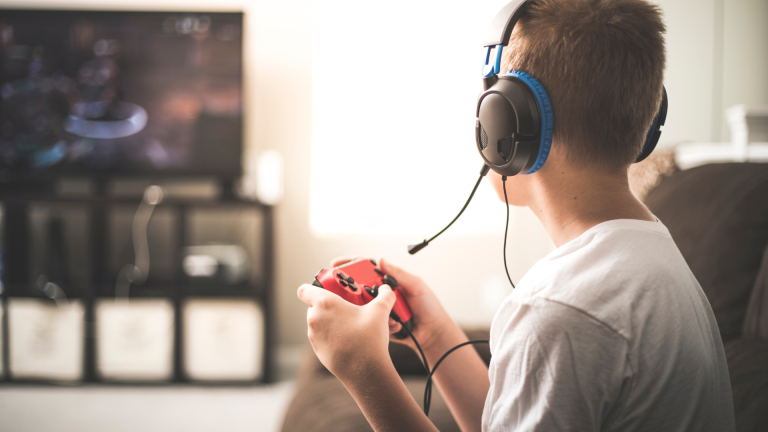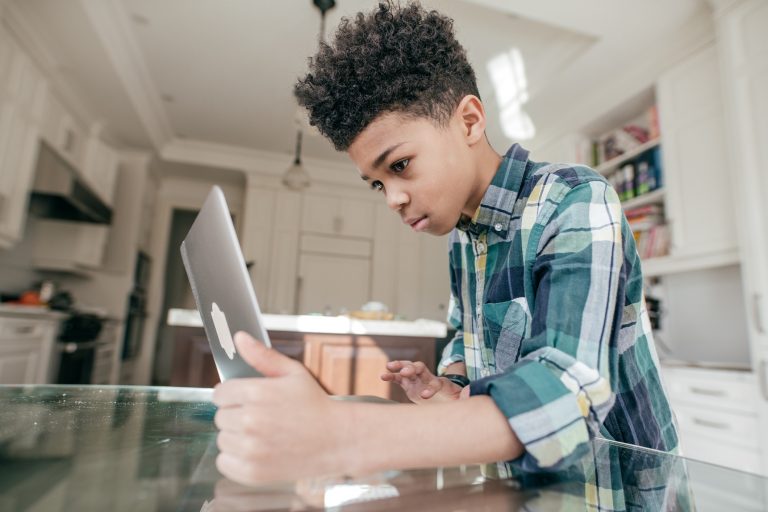Kids are spending more time than ever in front of screens.
According to the American Academy of Pediatrics, kids are now spending an average of seven hours a day on passive screen time including watching TV, playing video games, or watching YouTube.
The research on how this is affecting our kids is troubling.
Dr. Delaney Ruston of Stony Brook University Hospital, director of the film Screenagers reported that when a child is absorbed in an iPad, tablet or other screen type, “it releases a hormone in the brain, dopamine, that is so rewarding, kids want this more and more. And therefore when they are not on these highly stimulating screens, they actually can get really agitated.”
A 2017 study carried out by researchers at the University of Montreal, revealed that playing “shooter” games can damage the hippocampus area of the brain, causing it to lose cells.
There are also several studies that have indicated that too much screen time can affect the development of your child’s communication skills.
So what can you as a parent do to make screen time healthy and productive?

Table of Contents
1. Limit Screen time
First, it is important for you to place limits on the amount of time that your kids spend in front of screens.
The American Academy of Pediatrics (AAP) long recommended that kids under two not be exposed to screens at all, and that older kids’ time be limited to two hours a day or less.
The AAP has since updated its guidelines to reflect the widespread use of media by kids and families, and recommends:
-
-
- For babies up to 18 months old: Video chatting only (such as with a parent who is traveling, or a relative who lives at a distance)
-
-
-
- Toddlers 18 to 24 months old: High-quality programming that you and your toddler view together
-
-
-
- Preschoolers, 2 to 5 years old: No more than one hour a day of high-quality programming, viewed together with your preschooler
-
-
-
- Kids ages 6 and up: No specific time limit. Instead, parents should “place consistent limits on the time spent using media, and the types of media, and make sure media does not take the place of adequate sleep, physical activity and other behaviors essential to health.”
-
Here are some practical tips that you might consider for your family:
-
- Make screens off-limits for certain days or hours.
-
- Make bedrooms screen-free.
-
- Establish a no screen time rule at the dinner table
-
- Use screen time as a reward for completion of chores, homework, or good grades on a test or quiz.

2. Encourage creative, educational screen time
The Common Sense Census: Media Use by Tweens and Teens identifies four main categories of screen time.
-
- Passive consumption: Watching TV, reading, and listening to digital music
-
- Interactive consumption: Playing digital games and browsing the Internet
-
- Communication: Video-chatting and using social media
-
- Content creation: Using devices to create digital art, music, or to engage in computer programming
Encouraging your child to become a creator rather than a passive consumer of technology is one excellent way to make screen time productive.
Computer programming, 3D modeling, or digital animation are fun and educational activities that you might consider.

credit: gpointstudio
3. Engage in Screen Time Together
The AAP guidelines for children under 6 recommend that you view content together with your child, and communicate verbally during the activity.
This can help you explain to them what they are viewing and how it relates to the world around them.
Even as your child gets older, it can be fun and beneficial to do screen time activities together.
For example, at our online kids coding academy, many of our parents take online coding courses together with their children, which can lead to both educational achievement and productive bonding with your child.

4. Pay attention to how your kids act
It is important that you pay attention to how your kids act during and after watching TV or YouTube, playing video games, hanging out online, and using social media.
If they are engaged with age-appropriate, high-quality media, their behavior is good; and their activities are balanced with plenty of healthy screen-free time, there’s no need to worry.
If you notice spaced-out behavior, temper flare ups, or other symptoms that seem off, then it might be a good idea for you to make some changes.

5. Have ongoing communication about online citizenship and safety, including treating others with respect online and offline.
The Internet provides many fine educational and entertainment opportunities for children, but it has a dark side that many parents don’t know about.
90 percent of social media-using children that have witnessed online cruelty say they’ve ignored mean behavior on social media, and 35 percent say they’ve seen it regularly.
58 percent of children don’t see a problem with posting photographs and personal information online.
By starting an ongoing conversation now, studies show that you can influence your child’s behavior when it comes to the Internet.
Parents who have a good sense of what their kids are actually doing online are better set up to protect their kids, and those same kids are more likely to notify their parents if they have been the victim of inappropriate behavior or approached by strangers.
Have personal experience or other practical advice on how to make programming for kids effective? Please leave a comment below or email us at [email protected].

















